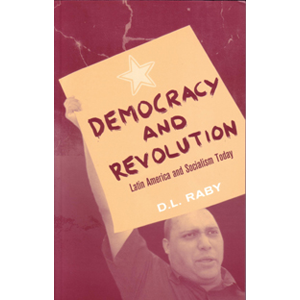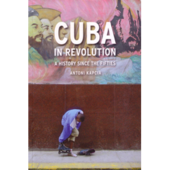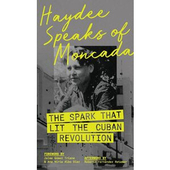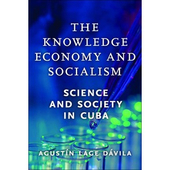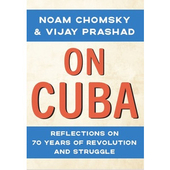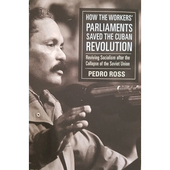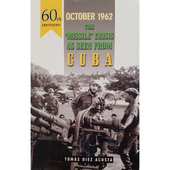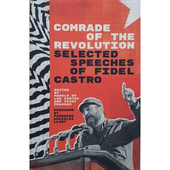Democracy & Revolution
Author DL Raby
D.L. Raby writes, “in my view the Cuban Revolution, for its faults, continues to represent the most advanced attempt to build socialism anywhere in the world, but this makes it all the more important both to defend Cuba and analyse it critically”. A positive, passionate and readable search for a way forward for the Left focussing on the experience of Cuba and Venezuela and what we might learn from them.
Publisher: Pluto Press | ISBN no: 0-7453-2435-5 | Year: 2006
£20.49 inc p&p
| Check Basket |
DL Raby lays her cards on the table in the preface to this book: “In my view the Cuban revolution, for all its faults, continues to represent the most advanced attempt to build socialism anywhere in the world, but this makes it all the more important both to defend Cuba and to analyse it critically.”
This is a positive, passionate and very readable search for a way forward for the Left and progressive popular movements focussing on the experience of Latin America and above all Cuba and Venezuela and what we might learn from them.
The author has made a conscious effort to use academic sources within Cuba and Latin America and it shows: a large part of the book analyses Cuba’s revolutionary development and its origins in a well-informed way.
One of the main aims, and the big question for many interested in Cuba, is to explain why and how Cuba has survived the very difficult ‘Special period’ (which resulted from the collapse of the Soviet bloc and an intensification of the US blockade) and achieved economic recovery with few concessions to capitalism.
Raby guides us carefully through the reasons, providing a comprehensive historical context,
Firstly, Cuba has a tradition of a broad revolutionary consensus. The formation of an anti-imperialist, anti-racist, democratic consciousness, that is wary of the ambitions of the USA to annex Cuba dates back to the early 19th century and was spelt out by Cuban independence war hero Jose Marti in 1895 shortly before he was killed. This was reflected through the early 20th century to the 1950s when tens of thousands of people, some armed some not, students, trade unionists, peasant farmers, liberal professions, urban and rural, participated in the mass movement of opposition to Batista.
Secondly, the transition to socialism after 1959 was relatively fast, without fatal setbacks, in Raby’s view due to an unflinching commitment to social justice, economic independence and political freedom by the leadership which aided an active mass mobilisation of the people into forming new mass organisations such as the Federation of Cuban Women, Commitees for the Defence of the Revolution and the adaptation of existing trade unions. The 1st and 2nd Declarations of Havana in 1960 and 1962 were key ideological statements made by the revolutionary leadership and are still relevant today.
Thirdly, Raby sees Fidel Castro as a genuinely populist leader, “an intuitive mouthpiece” who has always insisted on unity promoting alliances with all political forces prepared to agree on a minimum revolutionary platform – and building consensus above all. Raby deftly refutes the view of Fidel as dictator.
Fourthly, for Raby Cuba is a genuine participatory socialist democracy – which is examined here in detail past and present development, faults and all.
